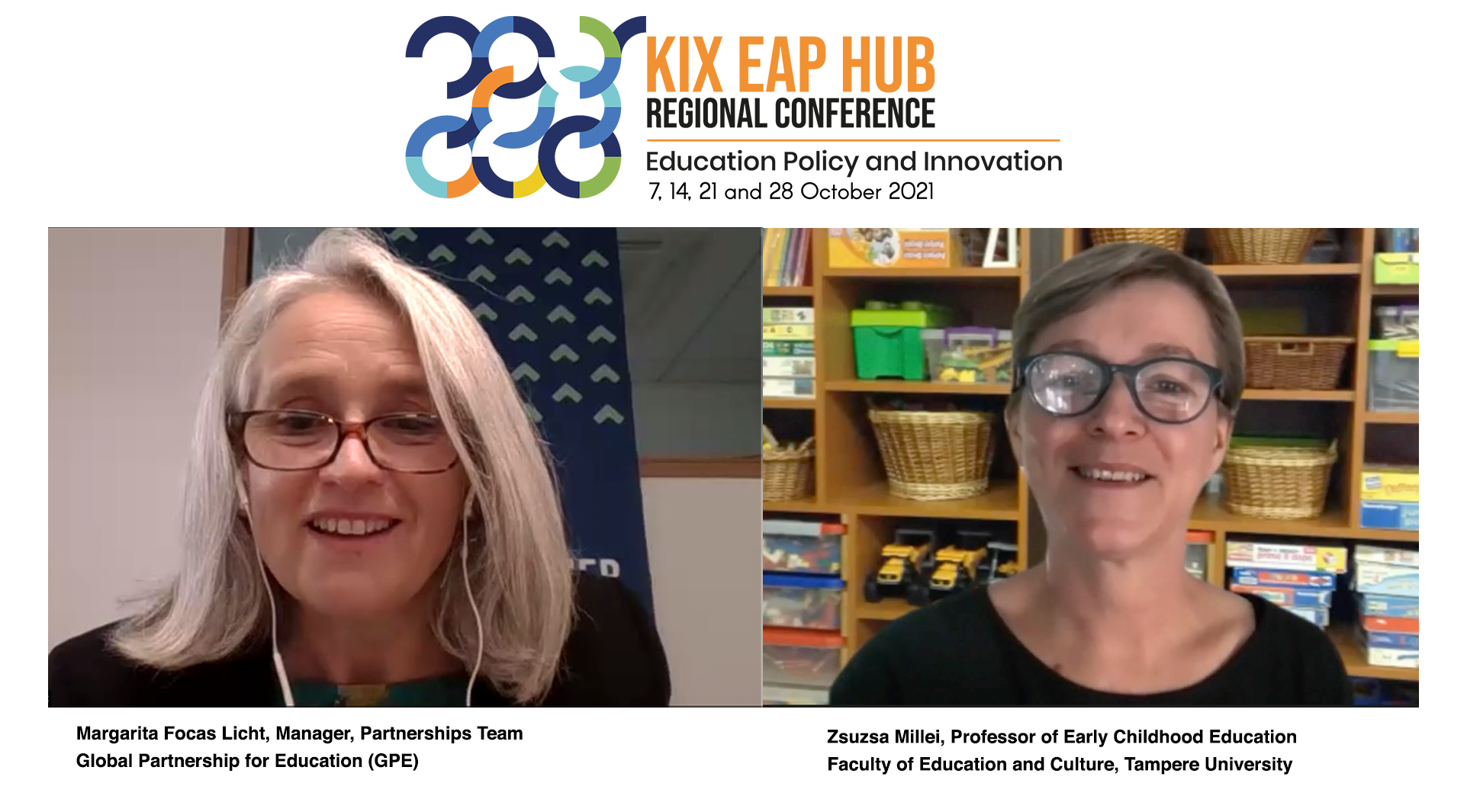
The first two days of the KIX EAP Education, Policy and Innovation Conference (EPIC) have been successfully wrapped up, with two more days scheduled to be held online on the 21st and 28th of October.
The first day of the KIX EAP regional conference focused on the timely issue of COVID-19 response and digital learning. The day started off with a keynote address from Margarita Focas Licht, Manager of the Partnerships Team at GPE, and Valtencir Mendes, Senior Education Programme Lead at UNESCO. According to Ms Licht, around 90% of the world's learners, i.e. an unprecedented 1.5 billion students, have been affected by the pandemic. She focused her address on detailing the different ways that GPE has supported partner countries' response to the pandemic by mobilising stakeholders and creating opportunities for innovative educational approaches to reach the most marginalised groups. Building on this discussion, Valtencir Mendes gave an overview of the GPE-supported collaboration between the World Bank, UNICEF, and UNESCO on COVID-19 responses at the national, regional and global levels, aiming to generate global public goods and build capacity.
The keynote address was followed by engaging thematic sessions. The sessions focused on the following topics: i) challenges and opportunities for education amid the COVID-19 pandemic; (ii) prospects of digitalisation in education; (iii) educational development in the digital age; and (iv) digital teaching and learning.
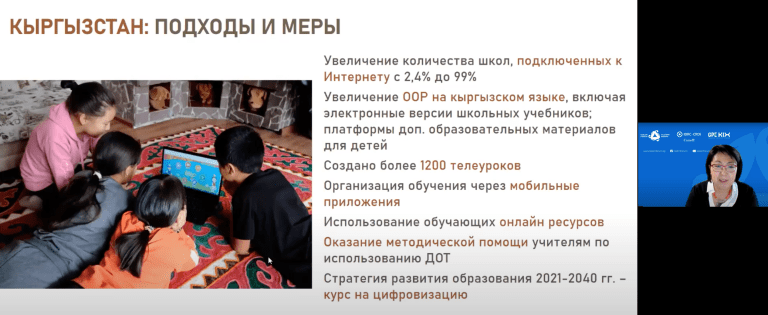 Jyldyz Doolbekova, Taalim-Forum Public Foundation
Jyldyz Doolbekova, Taalim-Forum Public Foundation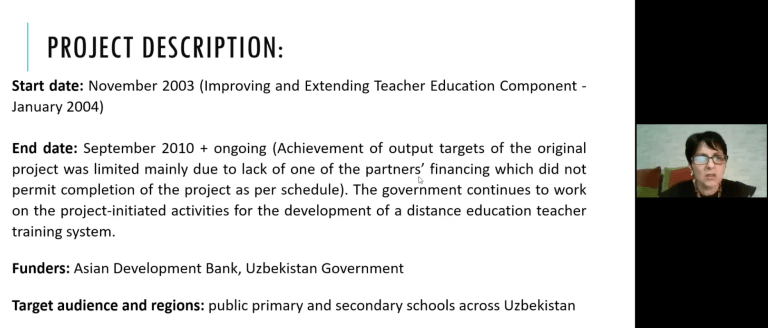 Elena Volkova, KIX EAP Learning Cycle Team
Elena Volkova, KIX EAP Learning Cycle Team
The second day of the conference focused on gender equality and social inclusion. Zsuzsa Millei, Professor of Early Childhood Education at Tampere University, delivered the keynote address. Building on research findings from the Hungarian context, she examined how histories, politics, hierarchies of power, new relations of economic and social life shape children's lives and can lead to gender discrimination or denial of individual rights. When asked how policymakers could promote gender equality and social inclusion, she referred to the importance of listening to researchers and to "keep in touch with what is happening on the ground, talk to communities and see what their issues are... look at the connection between everyday lives and what policies do".
Following the keynote address, discussions on the topic continued in parallel thematic sessions. These sessions focused on i) Access to Education; ii) Gender Inclusive Education in the post-Soviet space; iii) Policy Lessons on Inclusive Education; and iv) Inclusive Education from Policies to Practice.
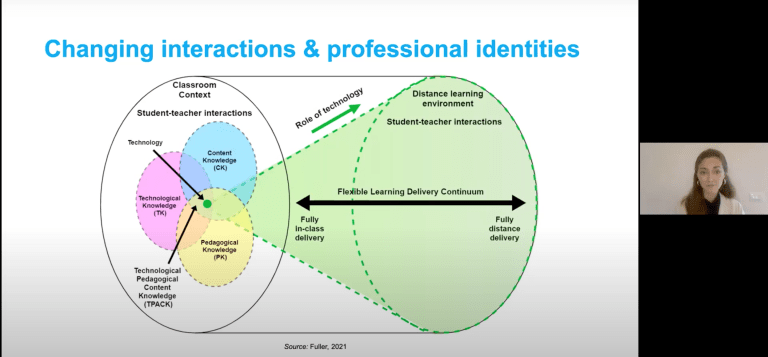 Sarah Fuller, UNICEF Regional Office for Europe & Central Asia
Sarah Fuller, UNICEF Regional Office for Europe & Central Asia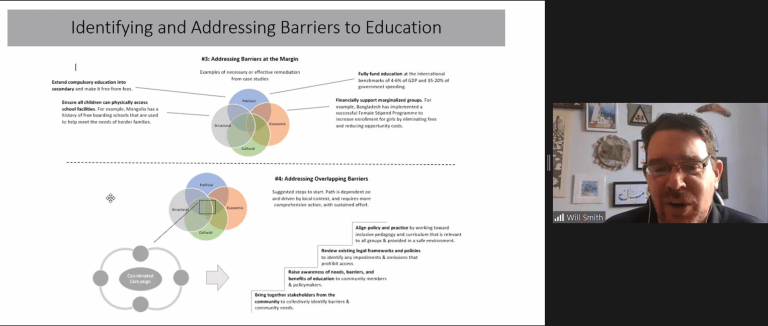 William C. Smith, University of Edinburgh
William C. Smith, University of Edinburgh
The various thematic sessions brought together participants from the different KIX EAP countries, and other parts of the world, who engaged, debated, and shared thought-provoking insights on how COVID-19 responses or the issue of gender equality and social inclusion unfolds in their context.
Don't miss out on the opportunity to join the final day of the KIX EPIC on October 28th which will focus on Teaching Quality and Learning.
Conference registration: https://norrag.zoom.us/meeting/register/tZEkc-qhrTgiGdVOTvAcZZUrgEyZw1PPi6tg
Conference website and agenda: https://norrag.zohobackstage.eu/KIXEPIC
